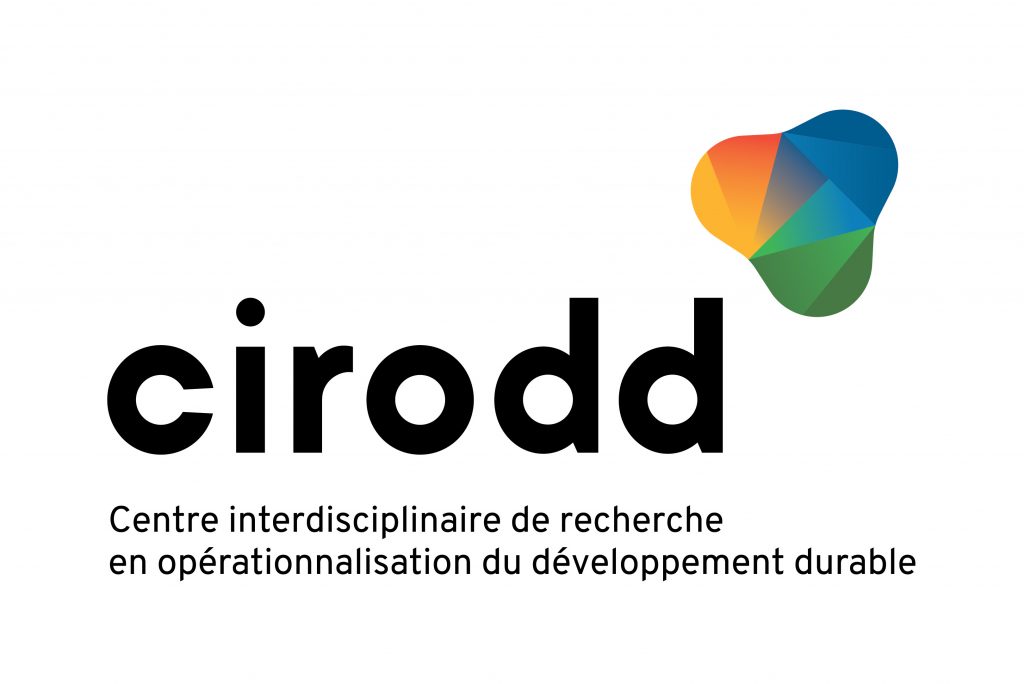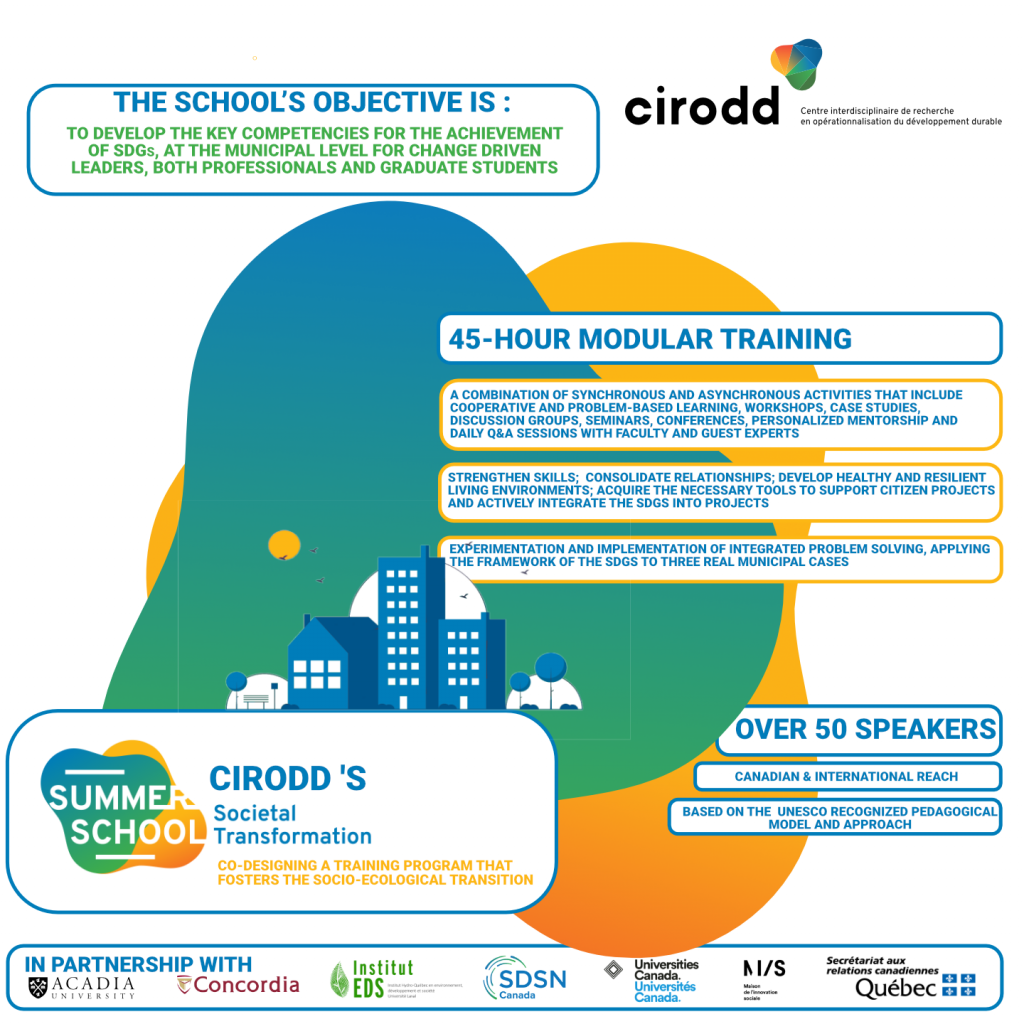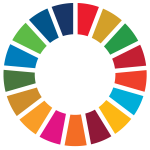Esta web utiliza cookies para que podamos ofrecerte la mejor experiencia de usuario posible. La información de las cookies se almacena en tu navegador y realiza funciones tales como reconocerte cuando vuelves a nuestra web o ayudar a nuestro equipo a comprender qué secciones de la web encuentras más interesantes y útiles.
CIRODD Summer School in Societal Transformation: Co-designing a training program to foster the socio-ecological transition
Description
Institution
CIRODD Centre interdisciplinaire de recherche en opérationnalisation du développement durable – École de Technologie Supérieure (ÉTS) FRQ Strategic Cluster CIRODD – Interinstitutional Centre for the Operationalization of Sustainability Development

Organizations/areas of the university involved
Our partners include: ● SDSN Canada ● The Community Development Department at Acadia University ● The Next Generation Cities Institute as well as the Integrated DEsign And Sustainability for the Built Environment (IDEAS-BE) Chair at Concordia University ● The EDS Institute at Laval University ● The Maison de l’Innovation Sociale (MIS)
Country
Canada
The Summer School’s aim is to develop the key competencies for the achievement of the SDGs at the municipal level for change-driven leaders, both professionals and graduate students.
A diverse cohort of leaders committed to change from the public, private and civil society spheres, as well as university students, will apply their newly acquired or strengthened skills to real municipal issues.
The objective of this 45-hour modular training is to develop the key competencies and know-how to promote the achievement of the 17 Sustainable Development Goals (SDGs) in a municipal context. It is a unique training program to strengthen skills, consolidate relationships, develop healthy and resilient living environments, acquire the necessary tools to support citizen projects and actively integrate the SDGs into projects, as well as strengthen multi-sectoral collaborative approaches at various scales. It includes experimentation and implementation of integrated problem solving, showcasing the framework of the SDGs in three real municipal cases (Centreville, Nova Scotia; Baie-Saint-Paul, Québec; and one industrial site in the C40 Reinventing Cities International Competition in Montreal).
We have built a solid partnership with SDSN Canada, Acadia University, Concordia University, the EDS Institute at Laval University and the Maison de l’innovation sociale (MIS) to offer a virtual school in both French and English to propose solutions to accelerate the socio-ecological transition in the communities studied. This training will allow participants to acquire new skills to apply in more complex job searches, t thus increasing their employability while allowing them to become agents of social transformation.
The virtual summer school involves a combination of synchronous and asynchronous activities, including cooperative and problem-based learning, workshops on key competencies and case studies, discussion groups and daily Q&A sessions with faculty and guest experts, seminars, conferences and personalized mentorship.
The school will lead to a continuing educational process supported over time by an international Community of Practice established jointly by CIRODD and its partners.
We will analyze and assess the summer school to adapt the framework and teaching strategies for its 2022 edition in order to scale up the training program, through the development of an adaptive pedagogical framework.
Results and impact measured or expected
This School targets a focused cohort of leaders across Canada. Over 30 researchers and experts contribute to the program. Three case studies are developed in collaboration with communities.
Over 15 relationships are developed nationally and internationally with universities (e.g. UQTR, UQAM, UdeM, ENAP and ASU) and with practitioners (e.g. UnPointCinq, McConnell Foundation).
An assessment exercise will include the co-creation of KPIs and a questionnaire with specialists. Participants will acquire increased knowledge and skills to create collective future visions and scenarios, build consensus based on shared stakeholder values and needs, and make decisions and implement system-wide interventions and solutions.
In particular, municipal professionals will be able to work with different audiences to address complex issues in an integrated way in their projects.
Individualized coaching is a key to success for the acquisition of core competencies. Success will also be evaluated on the potential for scaling up the program.
Connection with the SDG framework
The theory and tools of sustainable development are taught at multiple formal education levels and in non-formal specific programs in Québec. Understanding the complexity and diversity of socio-ecological issues, co-creating adapted solutions and implementing them in partnership with a wide variety of stakeholders require knowledge and skills that are absent from traditional academic curricula and insufficiently developed in public or private organizations in the province.
Among the new pedagogical models and approaches recognized by UNESCO, the work of Wiek et al. (2011) is a key reference. The structure of the Summer School is based on the development of identified key competencies leading to the acquisition of the meta-competency of integrated problem solving.
To date, it appears that these general competencies are only rarely the subject of dedicated training. The Summer School aims to bridge the gap and contribute to efficient education for the SDGs.
Barriers and follow up
“The School is intended for diverse audiences (municipal leaders, sustainability professionals and students) who are faced with different summer scheduling requirements. The modular timetable is adapted to the varied realities, combining synchronous and asynchronous activities.
Zoom fatigue: We provide an alternation of short interactive sessions and breaks, workshops, Q&A sessions, and free time periods. À la carte sessions are also offered.
Acquiring soft skills in a virtual world: Focus is put on providing activities that will help crystalize learnings into simulations, role play and workshops to increase interactivity. Cases will contribute to experimentation.
Accessibility: The School is designed to be bilingual. A pricing schedule has been devised to attract a variety of practitioners. A partial grant is also offered to students for their fees. The program is subject to either a training certificate from Continuing Education or is credited (4 or 3 credits) through Concordia University.
Transferability of the initiative
The impact of the School is twofold: first, directly through the current cohort of participants as they gain or deepen knowledge and skills and, second, through their impact in their respective ecosystems and communities.
The scaling up will be carried out with the development of new programs implemented within our partner organizations and starts with an accredited course in this first edition.
The intention is to become a transferable reference framework for other educational contexts, advance knowledge in the implementation of sustainable development, nurture existing networks and pursue inter-institutional, interdisciplinary and intersectoral collaborations. This will be done by sharing best practices, knowledge and skills, integrating new knowledge in social innovation and system transformation and identifying high impact, long-term projects.
The newly developed Community of Practice will allow for increased pan-Canadian and international participation, exchanges of expertise and experience in collaboration with the SDSN network and evolving partnerships.
Education 4 SDG funciona gracias a WordPress


